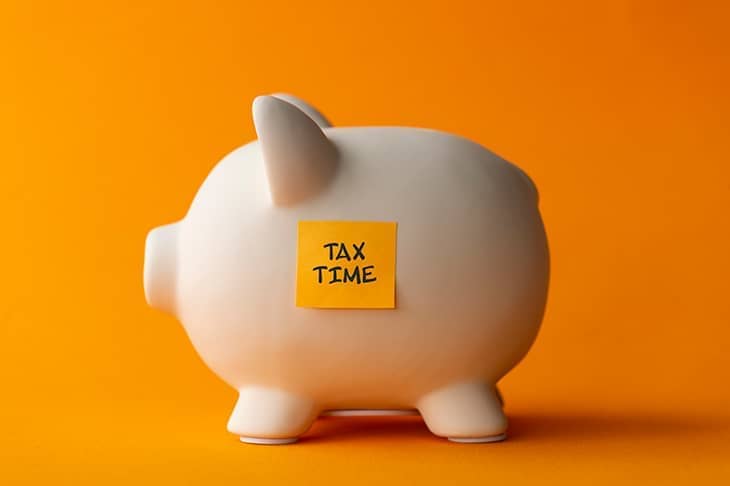Annual profits of £9.5 billion at BP this week followed a £20 billion jackpot at Shell last week, thanks to soaring global wholesale energy prices that BP boss Bernard Looney recently said had turned his company into a ‘cash machine’. For the very same reason, Ofgem has announced a 54 per cent (roughly £700) increase in the energy price cap for 22 million UK customers, while the Chancellor is scrabbling to keep at least some of those households out of ‘fuel poverty’ by offsetting half the rise with a £200 energy discount, to be recouped over five years, plus a £150 council tax rebate.
As investors in the oil giants look forward to enhanced dividends and multi–billion share buybacks, was there ever a plainer or timelier case for a windfall tax? Ed Miliband, Labour’s shadow secretary for climate change, says it ‘beggars belief’ that the government won’t do it; the Lib Dems and Greens are naturally gagging for it; more significantly, so were 75 per cent of Conservative voters polled by Savanta ComRes in mid-January.
Critics of the two oil giants point out that they paid no corporation tax on the profits of their North Sea operations in the three years to 2020, instead claiming hundreds of millions in tax reliefs while paying out £44 billion of dividends to shareholders; and that between them they could make as much as £40 billion in total profits this year. That’s enough, as the BBC put it, ‘to cover the energy bills of the majority of UK households’.
So let’s not suppose this windfall tax has gone away just because Rishi Sunak has so far said he won’t do it. And let’s recall the reasons why windfall taxes are in principle such a rotten idea: because they are retrospective, opportunist confiscations from investors who are in many cases the pension funds that hold the savings of millions of citizens; and because, both by signalling political hostility towards big business and creating the possibility of repeated tax raids, they deter capital investment by UK companies and multinationals. As Sunak has pointed out, major investment in renewables, nuclear and gas storage are what the UK urgently needs, far more than a one-off cash grab, to address a global energy squeeze.
But in a government as rocky as this one, facing May local elections just after the Ofgem cap hike in April, would you bet against a desperate Prime Minister (if it’s still him) ordering his Chancellor (perhaps no longer the ‘disloyal’ Sunak) to bring on a headline-grabber windfall tax? I wouldn’t — and I’d advise energy companies to brace themselves accordingly. It won’t even help them that in the forthcoming Tory leadership contest, whenever it happens, candidates will seek to outshine each other in Thatcherite credentials that would normally include love of enterprise and lower taxes.
Because of course the model Downing Street will have in mind is not Gordon Brown’s £5 billion windfall tax on the supposed excess profits of privatised utilities after Labour swept to power in 1997, but the £400 million raid in 1981 by Margaret Thatcher’s chancellor, Geoffrey Howe, on the supposed excess profits of the high-street banks — for which one underlying reason, historians say, was Thatcher’s own animus towards a sector, and a City, that she felt had failed to support her. What a very dangerous precedent she set.
Is Facebook finished?
Many billionaire watchers will have been quietly pleased to see the equivalent of the GDP of Estonia — some $30 billion — wiped off the fortune of Facebook’s unlovable founder Mark Zuckerberg when the share price of his master company, now called Meta Platforms, plunged by 26 per cent in a single day last week. Morally suspect, challenged by younger social media platforms such as the Chinese-owned TikTok, and showing for the first time a small but ominous drop in its average number of daily users, the 18-year-old Facebook is beginning to look like the fading giant of the tech galaxy. But does its plunge — alongside that of Netflix, down by a third since January — signal a wider bursting of the tech bubble that has seen (to quote Victoria Scholar of Interactive Investor) ‘indiscriminate gains over the past 22 months’?
I suspect not. While Meta was crashing, Amazon shares were rallying on the strength of increased quarterly revenues; Apple, whose adoption of stronger privacy measures in its operating systems has made it Facebook’s worst enemy, also still looks relatively strong. So do Microsoft, Tesla and Alphabet, the parent of Google. And even the joker of the pack, the hi-tech exercise-bike brand Peloton — whose two-thirds share decline since November began, I discover, when the Sex and the City character ‘Mr Big’ dropped dead after a vigorous Peloton workout early in the revived series — has perked up on rumours of a takeover bid from Amazon or Nike.
Tech investors really would profit from becoming more discriminating and value-led, but the saga that so fascinates them still has many episodes to run.
Paperless takeover
Manchester-based Interactive Investor, mentioned above, is the UK’s second-ranked online investment platform (after Hargreaves Lansdown) with some 400,000 customers and £55 billion of assets under management. It’s about to be swallowed up by Abrdn, the turbulent £532 billion merger of Aberdeen Asset Management and Standard Life. Completion of the takeover has been held up, however, for a reason you’d never have heard in the pre-pandemic era of abundance but one that’s currently disrupting many deals and sectors: a critical shortage caused by global supply-chain difficulties, in this case simply of paper. Abrdn needs a million copies of its 120-page offer circular in order to conduct a shareholder vote. Printers are struggling to oblige. But at least Abrdn’s much-mocked expulsion last year of all the Es from its own name must have inadvertently saved a few pages.







Comments